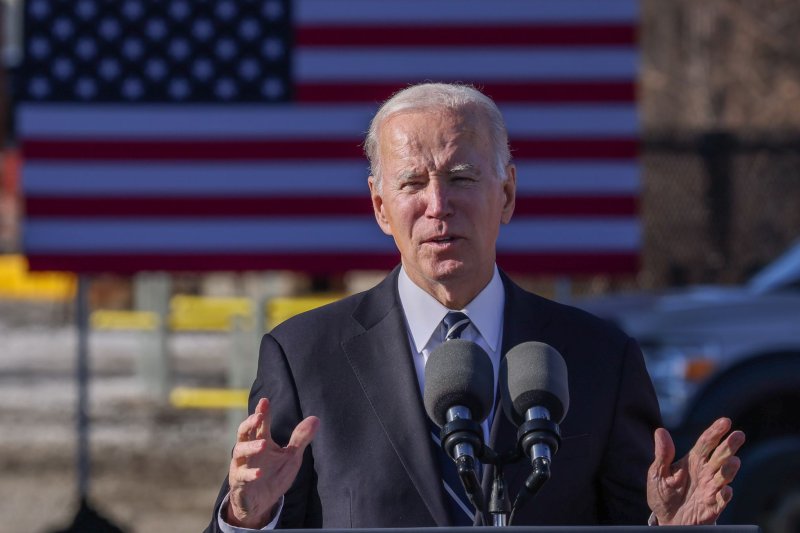The Biden administration says it will end the COVID-19 national and public health emergencies on May 11, more than three years after they were enacted. Photo by Jemal Countess/UPI |
License Photo
Jan. 31 (UPI) -- The Biden administration plans to end the COVID-19 national and public health emergencies on May 11, more than three years after they were enacted, the White House said Monday.
The White House announced it would extend the national and public health emergency declarations -- which are currently set to expire on March 1 and April 11 respectively -- to May 11 when they will expire for good.
"At present, the administration's plan is to extend the emergency declarations to May 11, and then end both emergencies on that date," the White House said in a statement of administration policy, opposing two Republican measures to end the COVID-19 emergencies immediately.
In extending the COVID-19 emergencies for another few months, the Biden administration said it would not impose any restrictions on individual conduct.
"They do not impose mask mandates or vaccine mandates. They do not restrict school or business operations. They do not require the use of any medicines or tests in response to cases of COVID-19," the White House said.
On Monday, the World Health Organization agreed the COVID-19 pandemic may be approaching an "inflection point" where increased immunity levels may limit the impact of the virus on morbidity and mortality.
Former President Donald Trump declared the COVID-19 emergencies in March of 2020 to release up to $50 billion for states to battle the virus during the pandemic. Since then, the emergencies have allowed the government to provide COVID-19 tests, vaccines and treatments at no charge.
While the Biden administration said it planned to end the emergency declarations in May, it needed to extend them one last time to provide an orderly wind-down.
"This wind-down would align with the administration's previous commitments to give at least 60 days' notice prior to the termination of the public health emergency," the statement said.
The Republican measures, up for a House vote this week, propose ending the emergency declarations immediately.
"An abrupt end to the emergency declarations would create wide-ranging chaos and uncertainty throughout the health care system -- for states, for hospitals and doctors' offices, and, most importantly, for tens of millions of Americans," the White House said, while also arguing that it needs more time to end Title 42.
"Enactment of H.R. 382 would lift Title 42 immediately and result in a substantial additional inflow of migrants at the Southwest border," the White House said Monday. "The administration supports an orderly, predictable wind-down of Title 42, with sufficient time to put alternative policies in place."
The U.S. House is scheduled to start voting Tuesday on the Republican measures, including the Pandemic is Over Act to end the public health emergency and another measure that would immediately end the national emergency.
"Rather than waiting until May 11, the Biden administration should join us now in immediately ending this declaration," Rep. Steve Scalise, R-La., said in a statement.
"The days of the Biden administration being able to hide behind COVID to waste billions of taxpayer dollars on their unrelated, radical agenda are over."














